Blog • Published on:August 4, 2025 | Updated on:August 4, 2025 • 17 Min
How Grenada Combines Lifestyle Freedom and Investment Potential
Grenada is the kind of place that stays with you. Not just because of its spice-laced breezes or the way the sun hits the sea at Grand Anse, but because everything here feels intentional. Placidly powerful. Grounded in nature yet surprisingly connected to the world.
Set in the southeastern Caribbean, this island nation offers more than just postcard views. It’s a hub for regional travel, a magnet for international investors, and a home for those seeking a lifestyle that blends beauty with balance.
With direct flights expanding across the region and a citizenship program that opens serious global doors, including access to the U.S. via the coveted E-2 visa, Grenada is positioning itself as both a hidden gem and a strategic outpost.
Whether you're drawn by the beaches, the business opportunities, or the chance to live somewhere that still feels human in all the right ways, this is your deep dive into Grenada.
Understanding Grenada’s Geography
Grenada is made up of more than just one island, though the main island gets most of the attention. In total, the country includes three inhabited islands, Grenada, Carriacou, and Petite Martinique, plus several small, uninhabited islets scattered across the southern Grenadines.
From mountainous rainforests to coastal plains lined with spice plantations, Grenada’s terrain is as layered as its culture. And its compact size, just 344 square kilometers, makes it easy to explore without losing the sense of discovery.
The Main Island’s Features
The island of Grenada is volcanic in origin, which means it’s rich in both landscape and soil. At its heart lies Mount St.aint Catherine, the country’s highest peak, surrounded by ridges, valleys, crater lakes, and hot springs.
The central highlands spill out into fertile plains and gently sloping coasts, many of which are home to nutmeg, cocoa, and banana plantations, hence the nickname “Spice Island.” This rugged yet accessible geography creates a rare blend: lush rainforests just minutes from world-class beaches.
The west coast, especially around St. George’s, is more developed and naturally protected, while the east coast faces the Atlantic with steeper cliffs, fishing villages, and dramatic wave breaks.
Neighboring Islands and Dependencies
To the north, the sister islands of Carriacou and Petite Martinique offer a different pace entirely. Carriacou is known for its sailing culture, quiet beaches, and Maroon and Stringband Music Festival.
Petite Martinique is even smaller, home to just a few hundred residents and a tight-knit fishing community. Both islands can be reached via ferry or small inter-island flights and offer a more rustic, local Caribbean experience.
Beyond that, Grenada controls a few other small islands in the Grenadines chain, most of which are uninhabited but prized for their snorkeling and secluded coves.
Closest Countries to Grenada
Despite its peaceful atmosphere, Grenada sits in a geopolitically relevant zone. The country is just north of Trinidad and Tobago, northwest of Venezuela, and south of Saint Vincent and the Grenadines.
Its position makes it an accessible waypoint for both regional travel and international shipping lanes, while still enjoying the southernmost position among the Windward Islands, which gives it better protection from major storms than many of its neighbors.
Grenada’s Strategic Position in the Caribbean
Grenada is well positioned for movement, access, and resilience. Whether you're traveling, investing, or relocating, geography here isn’t just about scenery. It’s about connectivity and stability in a region where both matter more than ever.
Distance from Major Cities
From Maurice Bishop International Airport, you can reach:
- Miami in about 4 hours
- New York in just over 5
- Toronto in under 6
- London with an indirect flight under 11 hours
Daily and weekly flights connect Grenada to major North American and European hubs, while new regional routes are making the Eastern Caribbean more accessible than ever.
New Regional Connectivity
As of July 2025, Sunrise Airways launched direct flights between Grenada and six key islands:
St Maarten, Tortola, Antigua, Dominica, Saint Kitts and Nevis, and Saint Lucia, a major leap for regional airlift.
With launch fares starting at $199, this is one of the most significant boosts to intra-Caribbean mobility in years. It’s now easier than ever to island-hop, do business across borders, or build a second home network across the Eastern Caribbean.
This expansion joins a wave of inter-island services from airlines like InterCaribbean, Caribbean Airlines, and Liat, giving Grenada residents and investors more flexibility than ever.
Maritime Access and Yacht Culture
Grenada also shines as a maritime hub. With deep-water ports and well-equipped marinas like Port Louis Marina and Le Phare Bleu, it’s a favorite for yacht owners and ocean travelers alike.
Sailing events like Grenada Sailing Week and the Spice Island Billfish Tournament draw global attention, while customs and docking infrastructure make Grenada a top-tier home base for vessels cruising the Southern Caribbean.
Regional Importance in a Shifting Landscape
As travel advisories tighten in parts of the Caribbean, Trinidad and Tobago, the Bahamas, and Haiti, for example, Grenada stands out for its political stability, safety, and low crime rates.
The country maintains a Level 1 travel advisory from the U.S. State Department. For investors, this isn’t just comforting, it’s crucial.
This directly draws from your shared news about:
- The U.S. elevating travel advisories for Haiti (Level 4: terrorism concerns)
- Bahamas and Trinidad and Tobago facing rising crime and security alerts
- Port of Spain flagged for gang activity and kidnapping risks
By contrasting these destinations with Grenada’s safer profile, the section positions Grenada as a rare point of Caribbean stability, especially valuable for:
- Investors looking for political and legal confidence
- Families considering relocation
- Tourists concerned about safety
Natural Beauty and Biodiversity
Volcanic Origins and Rugged Terrain
Grenada was formed by volcanic activity, and its terrain still bears the mark: steep ridges, crater lakes, mineral springs, and fertile valleys.
At the island’s center rises Mount Saint. Catherine, its highest point at 840 meters above sea level, surrounded by dense jungle and winding trails.
The volcanoes may be dormant, but they’ve left behind a lush, resource-rich island where hot springs bubble at the foot of the hills and nutrient-rich soil feeds everything from nutmeg to cocoa.
Rainforests, Waterfalls, and National Parks
The island’s interior is a patchwork of protected forests, hiking routes, and freshwater cascades.
The crown jewel is the Grand Etang National Park, a rainforest preserve home to monkeys, mongooses, hummingbirds, and Grenada’s national bird, the endangered Grenada Dove, found nowhere else on earth.
Other natural highlights:
- Seven Sisters Waterfall – a series of cascades deep in the jungle
- Annandale Falls – easily accessible and perfect for a refreshing dip
- Grand Etang Crater Lake – a volcanic lake surrounded by cloud forest
Despite centuries of development, upper-elevation forests remain untouched, offering an authentic glimpse into the island’s pre-colonial ecosystem.
Beaches and Marine Wonders
Grenada’s coastline is more diverse than you'd expect.
- On the Caribbean side, you’ll find soft white sand beaches like Grand Anse, Magazine, and Morne Rouge, perfect for swimming, paddleboarding, or just doing nothing.
- The Atlantic side is more rugged, with cliffside trails and black volcanic sands at places like black sand beach.
Under the surface, Grenada stuns again:
- The Underwater Sculpture Park in Molinière Bay is the first of its kind in the world, combining art, conservation, and snorkeling in one surreal experience.
- Coral reefs host close to 500 species of fish, including snapper, parrotfish, tuna, and mahi-mahi, supporting both ecotourism and the local fishing economy.
From coast to canopy, Grenada’s nature invites you to explore, protect, and just breathe.
Climate and When to Visit
Grenada has the kind of weather most people dream about, warm, steady, and kissed by trade winds.
But beyond the brochure-perfect sunshine, there’s a rhythm to the island’s climate that matters if you’re planning to visit, relocate, or invest.
Tropical Climate Overview
Grenada sits just 12° north of the equator, giving it a tropical rainforest climate moderated by northeast trade winds. That means:
- Average temperatures range from 24°C to 31°C (75°F to 88°F) year-round
- Even in the hottest months, the heat is tempered by a coastal breeze
- The sea temperature rarely dips below 27°C (81°F)
There’s no “cold season” here, just wet and dry.
Wet Season and Hurricane Profile
The wet season runs from June to November, with occasional tropical showers and lush, green landscapes. Rain often comes in bursts, short, heavy, and followed by sunshine.
Crucially, Grenada is located at the southern edge of the hurricane belt.
This geography has historically spared it from the more destructive storms that affect islands further north.
Hurricanes do occasionally pass through (most notably Ivan in 2004), but on the whole, Grenada is considered lower-risk than many of its neighbors.
Best Time to Visit
The dry season, from January to May, is peak travel time for a reason:
- Fewer rainy days
- Ideal for beach days, sailing, and hiking
- Cool breezes, vibrant sunsets, and calmer seas
This season also hosts some of Grenada’s most popular events:
- Grenada Sailing Week (late January)
- Independence Day (February 7th)
- Spice Island Billfish Tournament (late January)
For those who prefer fewer crowds and lusher scenery, the shoulder season, late May or early December, offers a sweet spot of both.
Access and Transportation
For an island that feels so relaxed, Grenada is surprisingly easy to reach, and even easier to navigate once you’re here.
Whether you’re arriving by air, sea, or planning to explore across the region, Grenada’s infrastructure is built for both comfort and movement.
Air Travel Access
Grenada’s main international gateway is the Maurice Bishop International Airport (GND), just 8 kilometers from the capital, St. George’s. The airport offers:
- Direct flights to and from New York, Miami, and Toronto, and major Caribbean hubs like Barbados and Trinidad
- Reliable service from airlines including JetBlue, American, British Airways, Caribbean Airlines, and Air Canada
As of July 2025, regional travel got even easier. Sunrise Airways launched six new direct routes connecting Grenada with:
- St Maarten
- Tortola
- Antigua
- Dominica
- Saint Kitts and Nevis
- Saint Lucia
These new flights, starting at just $199, are reshaping how people move across the Eastern Caribbean, and positioning Grenada as a regional access point for island-hoppers, investors, and digital nomads alike.
Maritime Connections
Grenada also shines on the sea. The island is a major stop on regional cruise routes, but it’s the yachting scene that really stands out.
Sailing into Grenada? You’ll find:
- Port Louis Marina (170 berths for all vessel sizes)
- Clarkes Court Bay Marina
- Le Phare Bleu
- And countless smaller docks tied to hotels, resorts, and boutique lodges
These marinas offer fuel, repairs, customs clearance, provisioning, and even rum shacks within walking distance.
It’s no wonder Grenada is a year-round favorite for sailors and yacht owners looking for calm waters, quality services, and access to the Grenadines.
Getting Around the Islands
Once you're on the ground:
- Minibuses connect all major towns and villages (flat fares around $1 USD)
- Taxis are easy to find, with fixed rates by destination
- Rental cars are available, but keep in mind, driving is on the left, and you’ll need an International Driver’s Permit
- Ferries operate between Grenada, Carriacou, Petite Martinique, and Saint Vincent, making it simple to explore beyond the mainland
The scale of the island means nothing is far, from airport to beach to rainforest trail, it’s often a matter of minutes, not hours.
Political and Legal Stability
Grenada is a parliamentary democracy and a constitutional monarchy, with King Charles III as ceremonial head of state, represented locally by a Governor-General.
As of August 1, 2025, however, state officials no longer swear allegiance to the British monarch. Instead, all oaths of office are now made directly to the State of Grenada following a constitutional amendment.
Executive power lies with the Prime Minister and Cabinet, while legislative authority is split between a Senate and a House of Representatives.
The legal system is based on English common law and is part of the broader Eastern Caribbean Supreme Court, which includes a High Court and Court of Appeal.
Why this matters to investors and residents:
- Property rights are clearly defined and protected
- Contracts and business regulations follow familiar common law principles
- The judiciary operates independently of the executive branch
Transparency and Global Standards
Grenada was one of the earliest Caribbean nations to launch a citizenship by investment program (in 1997), and it has maintained compliance with OECD, FATF, and European Union standards for due diligence and anti-money laundering.
Recent enhancements to the CBI program, including stronger vetting, background checks, and reporting protocols, have earned Grenada a reputation for credibility in a region where not every program offers the same level of oversight.
Real Estate and Investment Landscape
Whether you're looking for a vacation home, a long-term investment, or a pathway to second citizenship, Grenada offers real estate options that balance tropical appeal with practical opportunity.
The market is boutique, not oversaturated. And thanks to the country’s Citizenship by Investment (CBI) program, buying in the right location can unlock far more than just beachfront access.
CBI-Approved Investment Zones
Grenada’s Citizenship by Investment program offers two options:
- A non-refundable donation to the National Transformation Fund (starting at $230,000)
- A real estate investment in a government-approved project (starting at $270,000)
Most eligible properties are part of luxury resort developments, eco-retreats, or fractional ownership in boutique hotels. Popular CBI zones include:
- Silversands Grand Anse – ultra-modern beachfront living in Expat Central
- Mount Cinnamon – a hillside resort with sweeping views and established rental appeal
- Six Senses La Sagesse – eco-conscious luxury with wellness as its core
- Kawana Bay – prime location and strong hospitality brand appeal
Many of these properties offer 3–6% annual rental returns through managed rental programs, ideal for hands-off investors.
Market Prices and Ownership Structure
As of 2025, Grenada remains one of the most affordable real estate markets among CBI countries. According to industry data and comparative insights:
- Average price per m² in urban areas: $755–$1,700
- Budget entry point for private homes or condos: from $160,000
- One-bedroom apartment rental outside the city center: $440/month
- Three-bedroom apartment in city center: $1,700/month
Strategic Benefits for Property Investors
Buying in Grenada isn’t just about lifestyle, it’s about leverage.
Investors enjoy:
- Full ownership rights (freehold) for foreign nationals
- No capital gains, inheritance, or wealth taxes
- No tax on worldwide income for non-resident citizens
- Visa-free access to 145+ countries with a Grenadian passport, including the EU, UK, China, and more
- Unique eligibility for the U.S. E-2 Investor Visa, allowing business owners and their families to live and work in the United States
On top of that, Grenada offers an investor-friendly climate with:
- Political and legal stability
- Transparent regulatory processes
- Reliable rental demand from students, yacht tourists, and international guests
Whether you're planning to flip in five years or hold long-term as part of a global lifestyle strategy, Grenada’s property market offers low barriers, strong upside, and real global reach.
Living in Grenada
Life in Grenada moves at its own pace. It’s calm, warm, and quietly social—where mornings start with tropical sun and end with barefoot dinners by the water. But beyond the island charm, Grenada is also a functional, comfortable place to live, especially for expats, remote entrepreneurs, and families looking for a simpler, more connected lifestyle.
Expat Hotspots and Community
Grenada’s expat population is diverse but tight-knit, made up of diplomats, remote workers, boat owners, university staff, and second-home residents. Popular areas include:
- Lance Aux Epines – Grenada’s most established expat enclave, with gated villas, beachfront condos, and a strong international community
- True Blue – Close to St. George’s University and the marina, with great short-term rentals and student infrastructure
- Grand Anse – The heart of it all: shops, banks, the island’s best beach, and easy access to both nightlife and quiet corners
- Morne Rouge & St. David – More peaceful, with new boutique developments and rising appeal for long-term stays
English is the official language, and locals are known for being welcoming, warm, and proud of their island, making integration surprisingly easy.
Infrastructure, Schools, and Healthcare
Grenada balances laid-back island life with a solid foundation of services:
- Electricity, water, and internet are reliable, with broadband available in all populated areas
- Transportation is simple: buses, ferries, taxis, and rental cars are affordable and accessible
- Grocery and retail outlets include local markets, international supermarkets, and specialty stores stocked for foreign tastes
- Healthcare is well-regarded for a small island, especially private clinics. Grenada has six hospitals, plus family doctors and specialists available in urban areas
One of the island’s strongest assets is St. George’s University, a globally recognized medical and veterinary school.
It attracts thousands of international students and staff, ensuring top-tier facilities and a ripple effect of cosmopolitan services, from international dining to student housing.
Quality of Life and Cost of Living
Grenada isn’t the cheapest island in the Caribbean, but it offers value in proportion to comfort and safety.
- Rent for a one-bedroom apartment outside the city center averages $440/month, and $780+ in city areas
- A three-bedroom home in a central area can run $1,700/month or more, especially near the beach
- Local produce is abundant and affordable, but imported goods (especially from the US or UK) cost a premium
- Dining out ranges from $10 beach lunches to $75 dinners for two at upscale spots
What sets Grenada apart, however, is not just price, it’s balance:
- Low crime rates
- High natural beauty
- Friendly, English-speaking society
- Access to global travel and education
- And no personal taxes on foreign income or capital gains
You won’t find skyscrapers or mega malls here, but you will find something that’s getting harder to come by: an island where quality of life still feels real.
Why Grenada Is the Caribbean’s Best-Kept Secret
Some islands promise paradise. Grenada quietly delivers it and adds something more: strategic depth. This isn’t just a place to relax. It’s a place to build, belong, and branch out.
Here’s what sets Grenada apart in a crowded Caribbean field:
Geography That Works for You
Grenada is one of the few Caribbean nations with:
- Direct access to North America and Europe
- New regional flights connecting it to six neighboring islands
- Marinas, ports, and sailing infrastructure to rival much larger countries
And thanks to its southern location, it avoids many of the seasonal weather risks that affect northern islands.
Whether you're arriving by jet or yacht, Grenada’s position makes movement easy, and its scale keeps life simple.
Global Mobility
A Grenadian passport unlocks visa-free or visa-on-arrival access to over 145countries, including:
- The entire Schengen Area
- The UK and Ireland
- China, Singapore, and Russia
For the full list of countries Grenadian citizens can access without a visa, check out our detailed guide: Visa-Free Countries with a Grenada Passport.
But Grenada’s standout advantage is unique among Caribbean nations:
It holds an active E-2 treaty with the United States. That means qualified citizens can:
- Start and run a business in the U.S.
- Live there with their families
- Renew the visa indefinitely
No other Caribbean CBI passport offers this specific legal pathway.
A Lifestyle That Doesn’t Ask You to Compromise
In Grenada, business and lifestyle aren’t in conflict, they complement each other.
You can:
- Own freehold property as a foreigner
- Pay zero tax on offshore income
- Enjoy low crime rates, clean air, and a warm, respectful culture
- Dine seaside, with fish caught that morning and rum distilled just down the road
- And still catch a direct flight to London, Miami, or Toronto when needed
This is a country where your capital works harder, your passport opens more doors, and your time is better spent.
For those paying attention, Grenada offers something rare: the freedom to move, invest, and live well, without the trade-offs.
If you’re looking for a place that’s as strategic as it is soulful, Grenada might just be more than your next destination.
It might be your next decision.
FAQs on Living, Investing, and Moving to Grenada
1. How do I get to Grenada from the U.S. or Europe?
Grenada is connected to major hubs like Miami, New York, and Toronto, through direct flights. The island’s main airport, Maurice Bishop International (GND), also benefits from expanded regional access thanks to Sunrise Airways’ new 2025 routes.
2. Can foreigners buy property in Grenada?
Yes. Foreigners can legally purchase freehold property in Grenada. This can be done through an Alien Landholding License (ALHL) or by investing in a government-approved real estate project under the CBI program, starting from $270,000.
3. Is Grenada safe compared to other Caribbean countries?
Grenada is considered one of the safest islands in the region, with low crime rates and a Level 1 or 2 travel advisory from the U.S. State Department. It stands out in contrast to countries like Haiti or Trinidad & Tobago, which have seen elevated security warnings.
4. What is the minimum investment required for Grenada citizenship?
To obtain Grenadian citizenship, you can either:
- Make a non-refundable contribution of $235,000 to the National Transformation Fund (family-inclusive), or
- Invest at least $270,000 in a pre-approved real estate project, held for a minimum of 5 years.
5. Can Grenadian citizens live or work in the United States?
Yes. Grenada is the only Caribbean citizenship-by-investment country with an active E-2 treaty with the U.S. This treaty allows Grenadian nationals to start a business and reside in the United States with renewable long-term visas for themselves and their families.
References
Caribbean Journal Staff. (2025, August 3). Sunrise Airways just launched new routes to Tortola, Antigua, St Kitts, Saint Lucia, St Vincent, Dominica, and Grenada. Caribbean Journal. Retrieved from https://www.caribjournal.com/2025/08/03/sunrise-airways-new-flights/
Now Grenada. (2025, August 1). Governor‑General assents bill to change Oath/Affirmation of Allegiance. Now Grenada. Retrieved from https://www.nowgrenada.com/2025/08/governor-general-assents-bill-to-change-oath-affirmation-of-allegiance/
Global Citizen Solutions. (2025, July 6). Grenada Real Estate: An overview for international buyers. Global Citizen Solutions. Retrieved from https://www.globalcitizensolutions.com/grenada-real-estate/
Global Residence Index. (2025, February 28). Grenada Citizenship by Investment & Passport Guide 2025. Retrieved from https://globalresidenceindex.com/grenada-citizenship-investment/
FlightConnections. (2025, July 3). Flights to Grenada (GND). Retrieved from https://www.flightconnections.com/flights-to-grenada-gnd
Written By

João Silva
João Silva is a seasoned consultant in the global mobility industry with over 12 years of experience. Specializing in European residency and citizenship by investment programs, João has assisted hundreds of high-net-worth clients in securing their second citizenship through strategic investments in real estate and government bonds.
Related Articles

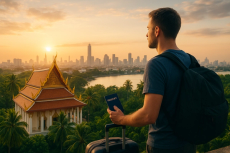


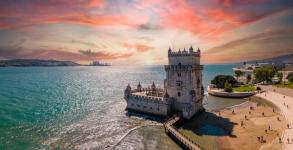
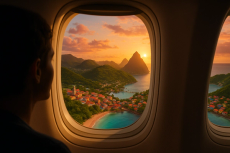
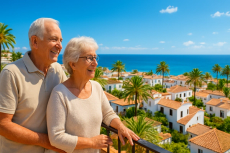

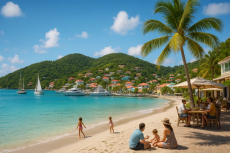
Recently Published
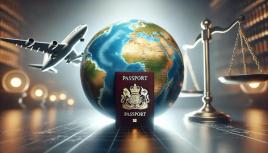
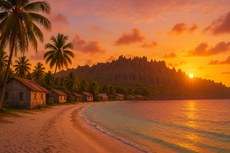






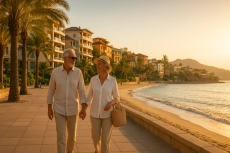
Book a free consultation


